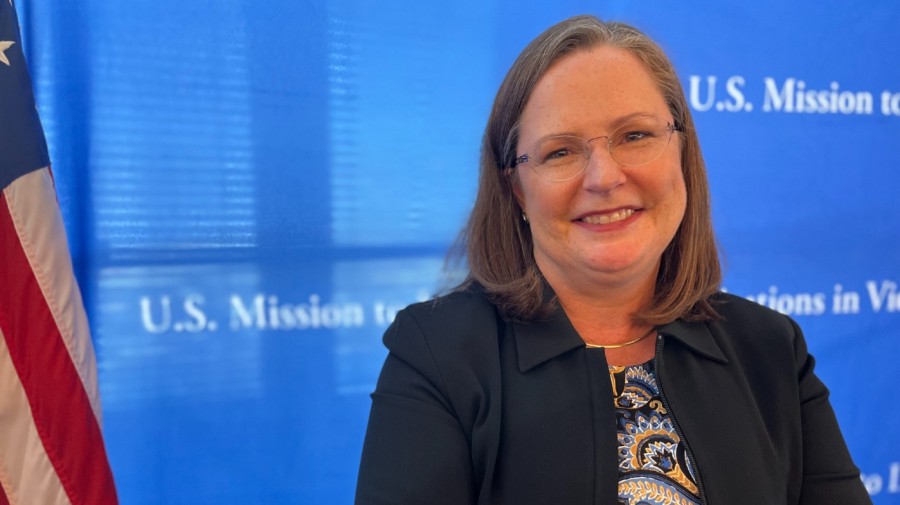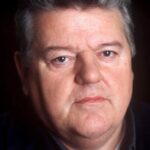President Biden’s top envoy for the safe use of nuclear power is warning that any use of nuclear weapons by Russian President Vladimir Putin is likely to have “devastating effects” and an “unpredictable cascade of outcomes.”
Laura Holgate, the U.S. ambassador to United Nations organizations including the International Atomic Energy Agency (IAEA), said in an interview with The Hill in Vienna last week that even though Washington and Moscow don’t appear to be in a standoff of “mutually assured destruction,” the potential consequences are no less grave.
“There’s no reason to be relaxed about a smaller-scale use,” she said of speculation that Putin’s threats around nuclear weapons may be constrained to a so-called tactical nuclear bomb.
“We need to be doing everything we can to prevent that, starting with, Putin needs to stop his irresponsible rhetoric around that,” she added. “I think today’s risks are less globally destroying … I would say from the U.S. side there is no goal of societal devastation of Russia. I won’t speak to what Putin’s goals may or may not be.”

Putin has increasingly rattled the nuclear saber in public comments and speeches as his war in Ukraine comes under rising criticism at home. Putin last month warned the West that his threats to use nuclear weapons to defend Russian territory were “not a bluff” and has pointed to the U.S. setting “precedent” of nuclear weapons use during World War II.
Biden has said Putin’s nuclear threats risk “Armageddon.” While the U.S. has not detailed what its response would be if Russia was to launch such an attack, officials say they have warned the Kremlin privately.
“I think any diplomatic effort is going to have both visible components and less visible components, and our approach to Russia is certainly in that realm,” Holgate said.
The ambassador, a nuclear nonproliferation expert, is one of the few diplomats who has regular contact with Russian counterparts, solely as part of U.S. talks to reenter the nuclear deal with Iran called the Joint Comprehensive Plan of Action (JCPOA).
The State Department has otherwise instructed its diplomats not to engage in bilateral talks with their Russian counterparts since Moscow’s invasion of Ukraine on Feb. 24.
“I think that’s one of the reasons that that is an exception to the general rule, is that the engagement with Russia on JCPOA issues has been constructive,” Holgate said.
The talks are led by the U.S. Special Envoy for Iran Rob Malley, and the group last met in Vienna in early August. Holgate describes Russia as seeing “the value in a return to full implementation by all parties of the JCPOA and are looking for ways to assist in getting there.”
But the talks may be on their deathbed. State Department spokesperson Ned Price on Wednesday said the U.S. is not focused on the nuclear talks with Iran “right now,” describing Tehran’s position as not serious.
Holgate agreed there is a bizarre cognitive dissonance between Russia’s cooperation on reviving the JCPOA and Putin’s threats surrounding nuclear weapons use.
“Putin’s threats seem to be unhinged from reality, whereas the conversations here on JCPOA issues are very specific and I would say more grounded, and connected to what’s really going on, and with a shared goal of returning the JCPOA to full functionality, full compliance by all parties,” she said.
“Obviously in the context of Russia’s further invasion of Ukraine, we do not have a common goal to say the least, so it would not be expected that there would be benefits from engagement on this issue.”
The IAEA, housed within the United Nations, was established in 1957 and was born out of fears of unchecked nuclear power and hopes of harnessing its potential. The organization largely puts its efforts into advancing the peaceful use of nuclear science while working to reduce the threat and proliferation of weapons of mass destruction.
The organization was awarded the Nobel Peace Prize in 2005 for its efforts to “prevent nuclear energy from being used for military purposes and to ensure that nuclear energy for peaceful purposes is used in the safest possible way.”
It also runs an emergency incident response team to respond to nuclear accidents or risks, like the 2011 Fukushima nuclear disaster in Japan. The IAEA has at least four officials on the ground in Ukraine’s Zaporizhzhia nuclear power plant monitoring the facility’s safety while it is under occupation by Russia and at risk of military strikes.
IAEA Director-General Raphael Grossi raised an urgent alarm on Wednesday after the plant was temporarily disconnected from external power. He tweeted Friday that intensive consultations between Russia and Ukraine were moving closer to establishing a protection zone around the plant, adding that its “situation is untenable and we need immediate action to protect it.”
The IAEA’s board of governors last month passed a resolution calling for Russia’s immediate withdrawal from the power plant.
Holgate described Russia as “looking to do some level of harm to the IAEA.”
“It’s challenging, and kind of — sad is a word I would use, to see how much of our affirmative agenda gets overwhelmed by the negative agenda of the day to day that we have here,” she said.
“Whether you rely on it for safeguards, or the nuclear watchdog role … or whether you rely on the nuclear technology and sustainable development support that the IAEA offers its member states. Most member states engage with the IAEA as a development agency, not as a security agency, but either way, a weakened agency is bad news for all of us.”




